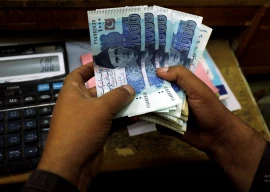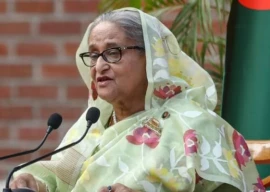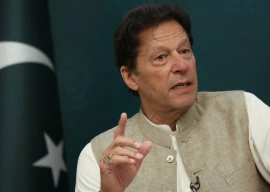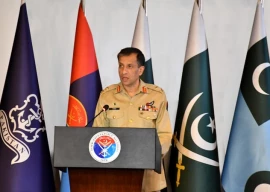
With mounting criticism of the independent power producers (IPPs), Prime Minister Shehbaz Sharif has formed a task force for engaging international firms to review agreements with the IPPs and suggest measures to slash capacity payments.
At present, electricity consumers are paying over Rs2.2 trillion in capacity charges to even those IPPs which are shut and not producing a single unit of electricity.
It is surprising to note that the cost of energy is Rs9 per unit which consumers pay to the plants that produce electricity whereas to the plants that are not generating any electricity, they are paying Rs18 per unit on account of capacity charges.
In other words, the closed plants are being rewarded despite producing nothing at all. Out of the total cost of electricity generation, the consumers are paying 70% in capacity charges.
Sources told The Express Tribune that the task force would review and recommend measures to reduce capacity payments including, but not limited to, shutting down certain plants and taking other necessary measures, as deemed appropriate.
It will review matters pertaining to the cost of setting up the IPPs and identify malpractices, procedural weaknesses and regulatory gaps, if any, with a view to recommending the way forward to rectify these issues.
The committee will assess the IPPs' compliance with the parameters, terms and conditions of the agreements signed with the relevant government agencies and institutions, and recommend measures to resolve the issue of circular debt in the energy sector.
The IPPs have come in for a lot of flak in recent weeks for the exorbitant capacity charges running into trillions of rupees.
Late last week, leaders of the All Pakistan Textile Mills Association (Aptma) Central and Southern Zones presented a charter of demands to run the industry in a seamless manner.
Talking to media persons at a press conference, Aptma Central Vice Chairman Naveed Ahmed urged the government to reduce interest rate to 6-7% from 19.5%, supply electricity at 8-9 cents per kilowatt-hour (kWh) instead of 14 cents and remove all unreasonable taxes on imports, exports and earnings to enable the industry to run its manufacturing units properly.
Aptma Southern Zone Chairman Zahid Mazhar and other leaders pointed out that the export-oriented textile industries of Sindh and Balochistan were confronting severe problems in the wake of inconsistent supply of both gas and electricity.
They called the expensive energy unacceptable and disastrous as it was causing the closure of industrial units.
The task force constituted by the PM has got the mandate to implement structural reforms in the power sector. It will identify the structural reforms with the objective of reducing the financial burden of the power sector being borne by the federal government and to enable the creation of an efficient, liquid, self-sustaining and competitive power market.
The task force includes Federal Minister for Power Awais Ahmad Khan Leghari (Chairman), Special Assistant to the PM on Power Hammad Ali (Co-chairman), National Coordinator Lt Gen Muhammad Zafar Iqbal, Syed Zakaria Ali Shah of the Secretariat Group (BS-21) (member), nominee of the National Electric Power Regulatory Authority (member), nominee of the Central Power Purchasing Agency (member), nominee of the Private Power and Infrastructure Board (member) and nominee of the Securities and Exchange Commission of Pakistan (member).
The task force may co-opt any expert from the public and private sectors and seek record and information and/or assistance from local and international consulting firms, bankers, legal advisers, chartered accountancy firms, or any other organisation or individual, as deemed necessary.
Among the terms of reference of the committee is to recommend measures for making power sector financially and operationally sustainable and oversee the development of an efficient and liquid power market design along with its implementation.
It will recommend the utilisation of excess capacity by industries and the Special Economic Zones (SEZs).
The role of the task force will not be restricted to fact finding and it will also be responsible for overseeing the implementation of its recommendations.
It will receive full support and the requisite budget allocation from the federal government.
Within one month of its establishment, the task force will submit recommendations along with an implementation plan for consideration by the prime minister.
The Power Division will notify the task force, which will receive the support of the special secretary, who will be the head of the committee secretariat.


















COMMENTS
Comments are moderated and generally will be posted if they are on-topic and not abusive.
For more information, please see our Comments FAQ